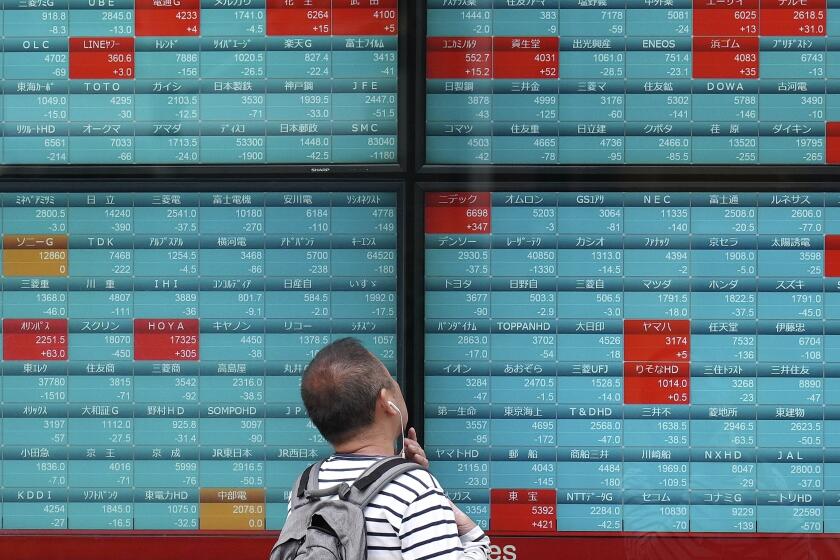Revision Leaves UnionFed With $18-Million Loss : Annual report: Shaky loans and writedowns are blamed. The thrift now falls short of federal standards for risk-based capital.
In a restatement of its annual financial report, UnionFed Financial Corp. said Wednesday that it lost $18.1 million for the year ended June 30 because of writedowns and increased reserves for shaky commercial real estate loans.
The Brea-based holding company, which owns Union Federal Savings Bank in Los Angeles, had previously reported net earnings of $11.1 million for the year, but federal regulators had forced the restatement after a recent examination of the thrift. The company earned $18.1 million a year ago.
For the final quarter, the company said it lost $30.9 million. It previously reported a fourth-quarter loss of $1.7 million. In 1989, UnionFed reported fourth-quarter earnings of $5.6 million.
“I knew the loss was going to be big, but I just didn’t know how big,” said Campbell K. Chaney, an analyst with Sutro & Co. brokerage in San Francisco.
The company’s stock closed at $2.50, down 25 cents in trading on the New York Stock Exchange.
The revisions mean the thrift, which has 27 branches in Orange and Los Angeles counties and assets of $2.5 billion, now falls short in one of the three stringent capital standards mandated by the federal thrift law and could be subject to restrictions on its growth and operations.
UnionFed also said it must file a capital compliance plan disclosing to regulators how it plans to raise more capital.
The thrift falls short on risk-based capital. The shortfall stemmed from the writedown of the holdings at Uni-Cal Financial Corp., the thrift’s real estate building and investment arm. UnionFed has about $100 million invested in Uni-Cal and, under federal law, must sell those holdings by July, 1994.
Donald Crowley, an analyst at Keefe, Bruyette & Woods, said that UnionFed is still strong enough to bounce back, pointing out that it handily exceeded the government’s other two criteria for capital, criteria he believed to be more pertinent than risk-based capital.
Roger Kringen, UnionFed’s chairman and chief executive, said the company remains strong, but he would not predict when it would return to profitability nor what its results were for the fiscal first quarter, which ended Sept. 30.
“We’re going back to basics, back to loans on single-family housing,” he said. “We have been one of the most successful home builders, but now we have to get out of that area.”
Kringen said the S&L; is backing out of its commercial real estate business. It is also withdrawing from construction lending because the real estate market is so soft, and it is no longer looking to lend in other states, he said.
The company said federal thrift regulators demanded it write down certain assets, primarily out-of-state commercial loans. In all, the company wrote off $32 million in loans for the year and increased its reserves for future losses by $9 million.
The thrift’s commercial loans in the New England states and in Florida, as well as three hotel loans in California, have caused most of its problems. Kringen said the bad loans were few but large.
About 80% of the $96.1 million in bad loans the S&L; had at the end of June involved commercial loans, and about 96% of the total amount was tied up in real estate the S&L; had acquired or has a right to acquire through foreclosure. Four hotel properties constitute 49% of the foreclosed real estate.
The biggest single problem is a package of loans made to a Boston developer and entities he controls for a shopping center and other commercial properties primarily in Maine. At the end of June, the thrift had $57 million in loans outstanding with the developer, and $53.5 million of that amount were bad loans or lower-valued, slower-paying restructured loans.
The thrift also foreclosed on an $11-million Florida property, and its Uni-Cal building arm is owed more than $16 million on a Key West, Fla., hotel.






